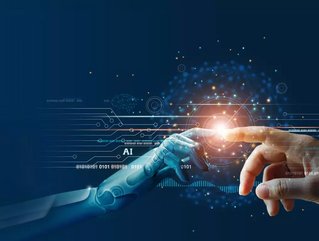AI in the workplace: Helpful or a Hindrance?

The pros and cons of using AI in the workplace have been much debated over recent years. With the acceleration in the use of radical new technologies, AI is very much a feature of working life in general
The benefits for employers have been significant, often providing a lifeline for business continuity during the lockdowns of the last year, but what about the impact on the employee?
Helpful
1. Increased Productivity - Businesses are using artificial intelligence to improve the productivity of their employees. One of the benefits of AI for business is that it handles repetitive tasks across an organisation so that employees can focus on creative solutions, complex problem solving, and impactful work.
An example of that is chatbots. From information gathering to initiating the process of filing customer complaints, the manual time needed to complete these tasks has been dramatically reduced by chatbots. Reducing administrative tasks could also help to eliminate human error from your customer operations.
2. Turn Complex Data Into Digestible Insights - One of the benefits of AI is that it can help companies decipher their data and gain valuable insights from it without a data scientist on staff.
AI applications that provide big data insights can:
- Identify important changes in patterns
- Isolate trends
- Create detailed reports that can help companies see if they are on the right track
- Perform deep-content analysis and do evidence-based reasoning
- Predict what key business metrics the company needs to track to optimise performance
Gaining insights from data, something that used to require a lot of time and manual effort, can now be done with artificial intelligence. This unlocks a lot of potential from employees that can be used to improve customer service and make smarter business decisions.
One example would be a bank that uses AI for recommending financial products. The basis of the recommendation is an AI analysis of available funds, current market conditions, and customer’s past decisions.
Hindrance
In May 2021, the TUC and the AI Consultancy published a report - Technology Managing People - the legal implications. One focus of the report is the lack of transparency in decision making that comes with the use of AI, the basis of the decision being made is often unknown to those that the decisions are being made about. The report points out that where it is difficult to identify when, how, and by whom discrimination is introduced, it becomes more difficult for workers and employees to enforce their rights to protection from discrimination.
The paradox of AI is that it expands its control over the workforce, while simultaneously diffusing accountability in the decision-making chain. A manager in charge of hiring workers will be subject to anti-discrimination duties in law, but who is held responsible when an AI tool, itself, introduces discrimination into the “hiring and firing” process?
Machines can perform only those tasks which they are programmed to do, anything outside of that, they tend to give irrelevant outputs. While many companies are starting to implement AI as much as they can, due to the many advantages the technology has, there are downsides to its implementation, one of the biggest downsides being the lack of human input and thought processes. AI in the workplace doesn’t look set to replace humans but to work alongside them.
Given the rise in AI, along with its reach and impact, we are starting to see a shift towards calls for greater restrictions and regulation. The future right now is uncertain, but with rapid digital transformation and more businesses using AI technology, it looks likely to continue growing, albeit with more restrictions in place.






